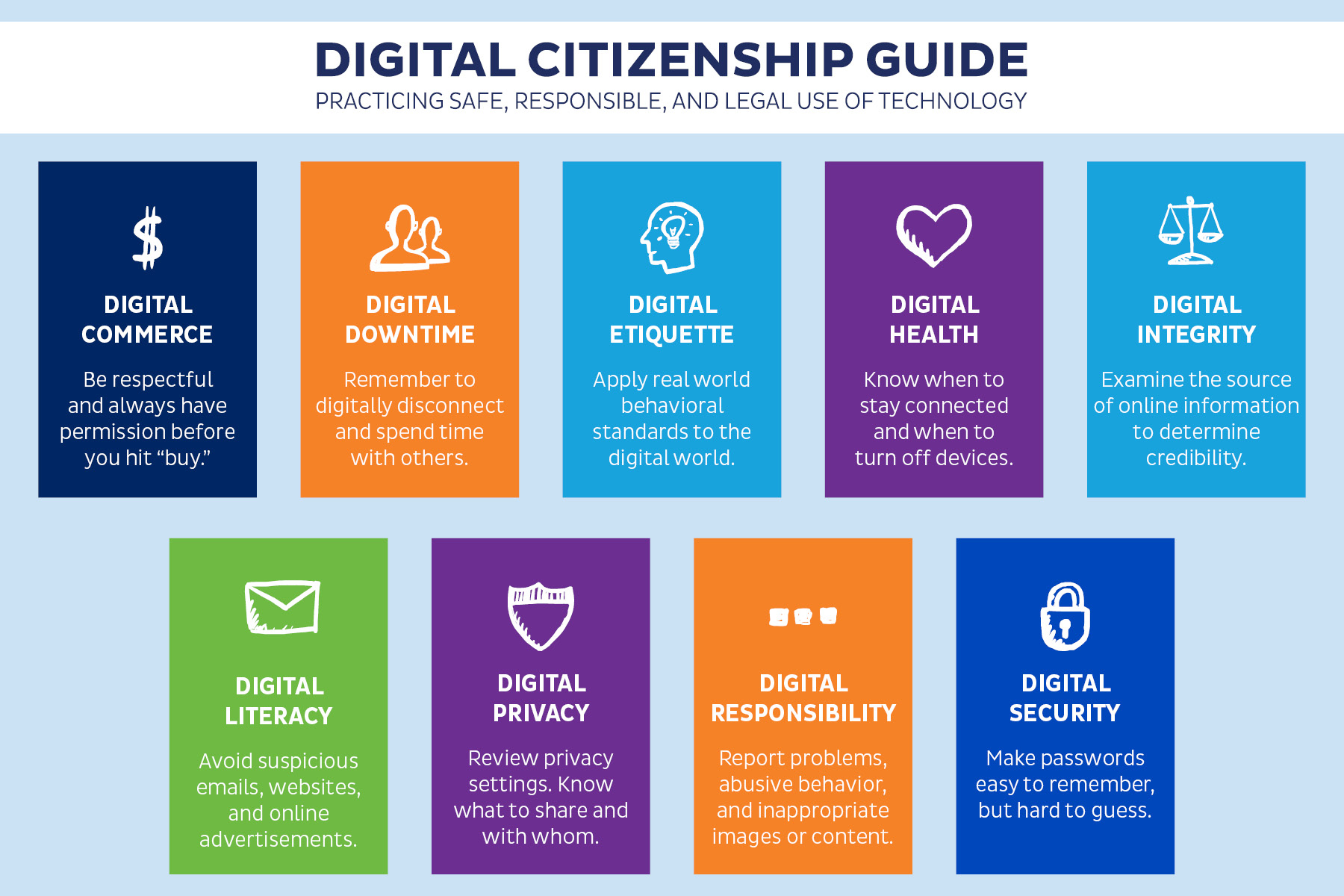Digital citizenship refers to the responsible use of technology by anyone who uses computers, the Internet, and digital devices to engage with society on any level.
Good digital citizenship engages young students and shows them how to connect with one another, empathize with each other, and create lasting relationships through digital tools.
Bad digital citizenship, on the other hand, entails cyberbullying, irresponsible social media usage, and a general lack of knowledge about how to safely use the Internet.
If you want to teach digital citizenship, you'll want to focus on seven key concepts:
Good digital citizenship engages young students and shows them how to connect with one another, empathize with each other, and create lasting relationships through digital tools.
Bad digital citizenship, on the other hand, entails cyberbullying, irresponsible social media usage, and a general lack of knowledge about how to safely use the Internet.
If you want to teach digital citizenship, you'll want to focus on seven key concepts:
- Empathy
- How the Internet works
- Understanding user data
- Practicing digital literacy
- Acknowledging the digital divide
- Practicing digital wellness
- Securing digital devices

So it is important to be ourselves good digital citizens and to teach our students to be like that. Thus, our online world will be a more safe and welcoming place for everyone.
ReplyDelete